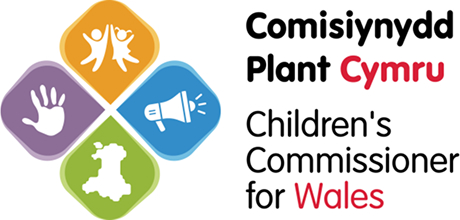The ALNET Wales Act 2018 says ‘A person has additional learning needs if he or she has a learning difficulty or disability (whether the learning difficulty or disability arises from a medical condition or otherwise) which calls for additional learning provision.’
We know that children with ALN are frequently faced with barriers when accessing support in areas such as education and health. Data from the Welsh Government’s School Census, January 2024, shows that 13% of learners at further education institutions had a disability and/or learning difficulty and that total expenditure on ALN provision is expected to increase by 7% compared with last year.
In the UN Convention on the Rights of the Child, there are several articles that relate to children with ALN. These include:
- Article 23 – every child has the right to special care and support if you have a disability so that you can lead a full and independent life.
- Article 24 – the right of the child to the enjoyment of the highest attainable standard of health and to facilities for the treatment of illness and rehabilitation of health,
- Article 28 – the right of the child to education, and with a view to achieving this right progressively and on the basis of equal opportunity
- Article 29 – the education of a child shall be directed to the development of the child’s personality, talents and mental and physical abilities to their fullest potential
What do we know?
- There has been a reconfiguration on the Welsh Language Steering Group to bring together expertise across ALN and Welsh Language regarding the Welsh Language Education (Wales) Bill
- Around one third of the casework received via our Children’s Rights Advice and Assistance service team concerns issues faced by children with additional learning needs. We’ve heard cases of children:
- being placed on reduced timetables where a school cannot meet need
- delays in producing Individual Development Plans (IDP)
- refusal to convert a child’s Individualised Education Programme (IEP) to an IDP as the young person did not meet the “criteria”
- We’ve also visited a specialist school where adequate ALN provision has not been met due to fundings cuts and lack of investment. Young people told us ‘Some of our wheelchairs don’t fit through doors and we can’t get into rooms. We don’t have any doors with a button so we must ask for help’ and that their school ‘will collapse soon’.
- Private diagnoses are not being accepted by some schools in Wales.
- Children from very young ages being without suitable provision to meet their needs
- Increased use of severely restricted timetables, resulting in lack of access to sufficient and suitable education
- Conflict between schools and local authorities on ownership of children’s Individual Development Plans (IDPs) and the responsibility for making provision to meet the identified needs within those plans
- Significant delays in children being able to access assessments with educational psychologists and/or for diagnosis of neurological conditions.
- The point above is affecting children’s access to suitable provision including specialist school places, despite the system being intended to be need led and not reliant on a diagnosis.
What have we done?
- Published a paper jointly with the Welsh Language Commissioner on the specific needs of children with ALN, in Welsh medium settings; and presented the paper to a range of audiences including the Welsh Government working group on ALN and Welsh medium education.
- Submitted a response to the Welsh Language Education (Wales) Bill call for evidence asking the Welsh Government to create a timetable for developing national interventions and to publish its plans in areas including workforce planning, resources, and professional learning.
- Dealt with cases via our Advice team related to additional learning needs – 14% of the total case work in 23/24 related to additional learning needs.
- Contributed to the Education Tribunal Wales User Forum meetings.
- Contributed evidence to the Senedd Children, Young People and Education Committee’s inquiries into disabled children’s access to education and childcare, and the implementation of the ALN legislation.
- Attended the Welsh Government ALN Reform National Steering Group as observers, discussing issues relating to Welsh Government ALN policy. This includes positioning ALN as a national education priority; encouraging multi-agency working and collaboration; and support with ongoing implementation of Additional Learning Needs and Education Tribunal (Wales) Act 2018.
Our No Wrong Door Approach sought to understand how young people and parents often must navigate complex systems, particularly for children with ALN who move from child to adult services. Our office presented these findings to Welsh Government who are working on a neurodiversity plan.
What is happening to support children?
In May 2024 the Welsh Government announced additional funding of £20 million for ALN provision in schools. This funding has been ringfenced to help with building and updating sensory areas, specialist equipment upgrades, specialist classrooms and outdoor spaces as well as improving the additional learning provision through the medium of Welsh.
Additionally, there is a review currently underway to consider the clarity and accessibility of the legislative framework.
As part of this review, the Welsh Government will aim to identify solutions to the challenges. This will include actions to support implementation such as:
- collaborative efforts to develop a shared understanding
- to improve guidance
- to look at any potential legislative measures
The review will consider the clarity of the Act and ensure that it aligns with the intended policy objectives, whilst also identifying inconsistencies and assessing how the Act is applied in practice. The ALN review on legislative framework will not commence reporting until Summer 2025.
As a member of the ALN Reform National Steering Group my team will continue to engage in these conversations and advocate for greater transparency for better consistency of ALN delivery.
In September 2024 the Welsh Government published a response to the Children Young People and Education Committee Access to Education for Disabled Children Report. The response included several key accepted recommendations that our office will continue to call for action on. Some of these points include:
- The Welsh Government confirms the scope of the review into the ALN Act and Code, and outlines the timeline for completion of this review, and whether the findings of the review will be published.
- The Welsh Government should undertake a comprehensive review into how non-teaching staff both within schools and local authorities can best support inclusive provision across Wales.
- The Welsh Government commissions research into the use of reduced timetables, which includes the length of time children and young people are on them, the reasons for them being used, and the steps that are taken to return children and young people to a full timetable.
- In responding to the findings of the review of school funding, the Welsh Government should outline publicly how it will take forward any recommendations or actions arising from it, and set out a clear timeline for delivery of these actions
- The Welsh Government should issue guidance clearly setting out the responsibilities and duties of local authorities and schools to ensure they are providing the necessary support so that all children and young people are able to access their right to an education.
- The Welsh Government should issue guidance to schools and local authorities to ensure that either new buildings, or changes to current school estates are based on the experiences and evidence of children, young people, families and staff with lived experience.
- The Welsh Government reviews the information currently available on rights in education, ensuring that it is widely available, accessible in a range of formats, and supports children, young people and their families to understand what their rights are, and how to seek redress if their rights are being breached
What needs to change?
- Dismantlement of barriers for children with ALN accessing support in education and health
- For the use of reduced timetables to not be used as a reaction to lack of resourcing
- Increased response time on producing Individual Development Plans (IDP)
- A needs-based approach when considering a child’s criteria
- For better transparency on funding cuts to specialist schools including clear communication between Welsh Government and children and young people
So far, from the cases and experiences brought to the office, the Act has not had the desired effect of reducing bureaucracy and making it easier for families to access support for their child’s education. Whilst there has been a lengthy implementation period over the last few years, there is a way to go yet to ensure all children are receiving their right to the highest level of education and care possible to help them achieve their full potential.


